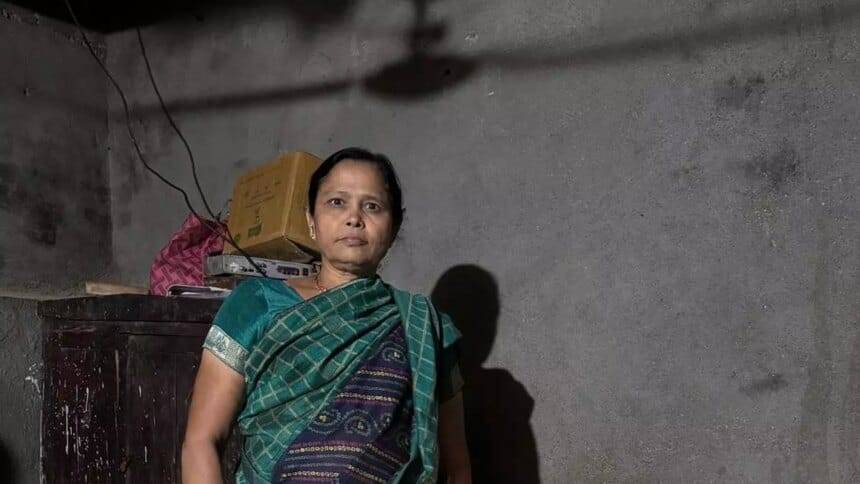Main Points In Hindi (मुख्य बातें – हिंदी में)
-
कृषि संकट और अवसाद: मेघा कुलकर्णी की कहानी कृषि संकट और किसानों की आत्महत्याओं का जीता-जागता उदाहरण है। उनके पति ने कर्ज के बोझ और फसलों की नुकसान के कारण आत्महत्या की, जो इस संकट की गंभीरता को दर्शाता है।
-
अवास्तविक समर्थन मूल्य: किसानों को फसल की लागत से करीब 750 रुपये कम कीमत पर सोयाबीन बेचना पड़ रहा है, जिसके चलते उनके प्रयासों का उचित मुआवजा नहीं मिल रहा है। यह आर्थिक अस्थिरता किसानों के सामने अस्तित्व का संकट खड़ा कर रही है।
-
राजनीतिक वादों का टूटना: चुनावी प्रचार के दौरान किए जाने वाले वादे किसानों के लिए सिर्फ खोखले शब्द साबित हो रहे हैं। पिछले कुछ वर्षों में हजारों किसानों ने आत्महत्या की है, लेकिन राजनीतिक दलों के वादों में कोई वास्तविकता नहीं दिखाई दे रही है।
-
सरकार की अनदेखी: सरकारों पर आरोप है कि वे किसानों की समस्याओं के प्रति संवेदनशील नहीं हैं और उनके जीवन की कठिनाइयों को नजरअंदाज कर रही हैं। कार्यकर्ता इस स्थिति की ओर इशारा करते हैं कि सभी सरकारें केवल उपभोक्ताओं की फिक्र करती हैं और किसानों की स्थिति में सुधार का कोई प्रयास नहीं कर रहीं।
- निरंतर संकट: पिछले कुछ वर्षों में मायूसी और भुखमरी का चक्र किसानों को घेर रहा है, जो यह दर्शाता है कि समस्या केवल मौजूदा सरकारों से नहीं बल्कि समग्र कृषि प्रणाली से जुड़ी है।
Main Points In English(मुख्य बातें – अंग्रेज़ी में)
Here are the main points from the article about the plight of farmers in Maharashtra amidst ongoing agrarian crisis and political neglect:
-
Despair Amidst Political Chaos: Amidst the noise of election campaigns in Maharashtra, farmer Megha Kulkarni stands distressed as prices of soyabean drop significantly below the minimum support price. Her worries extend beyond mere economics; she faces an existential struggle, reflecting the broader plight of farmers in the region.
-
Continuous Agricultural Crisis: The agricultural crisis has led to a dramatic increase in farmer suicides, with over 1,900 reported in the past nine months alone. This highlights the severity of the situation, as many farmers become ensnared in a cycle of debt and despair, reminiscent of the struggles faced by Megha’s late husband.
-
Broken Promises and Political Indifference: Despite political parties making numerous promises regarding debt relief and financial support, farmers like Megha perceive these declarations as hollow. There is a palpable frustration towards politicians who have failed to address their grievances effectively.
-
Unchanged Conditions: Many farmers express a sense of futility regarding their situation, emphasizing that regardless of changing governments, their circumstances have not improved. They feel trapped in a system that prioritizes consumer interests over the struggles faced by agricultural workers.
- Systematic Neglect: Activists point out that successive governments have systematically overlooked the agrarian crisis, enforcing policies that do not aid farmers but rather exacerbate their suffering. This neglect fuels a growing sense of anger and helplessness among farmers who feel unheard and abandoned.


Complete News In Hindi(पूरी खबर – हिंदी में)
धाराशिव, मराठवाड़ा में चुनावी नारों के शोर और प्रचार रैलियों की अराजकता के बीच, मेघा कुलकर्णी स्थिर खड़ी हैं, कटे हुए सोयाबीन की बोरियों को पकड़ते हुए उनके हाथ कांप रहे हैं। चिंता और थकावट की रेखाओं से उकेरा हुआ उनका चेहरा, वादों और उनके चारों ओर घूमती राजनीति से बहुत दूर एक कहानी कहता है। उन्हें सड़कों पर लड़ी जा रही राजनीतिक लड़ाइयों की कोई परवाह नहीं है। उसके लिए, केवल एक ही लड़ाई है: अस्तित्व की लड़ाई।
स्थानीय एपीएमसी मंडी में सोया की कीमतें घटकर मात्र ₹4,150 प्रति क्विंटल रह गई हैं, जो कि ₹4,892 के न्यूनतम समर्थन मूल्य (एमएसपी) से काफी नीचे है, जिस पर उन्होंने 2024-25 सीज़न के लिए अपनी उम्मीदें लगाई थीं। अपनी कड़ी मेहनत पर उचित रिटर्न पाने के उसके सपने और भी दूर होते जा रहे हैं क्योंकि कम बाजार कीमतों की कठोर वास्तविकता ने उसके चारों ओर अपनी पकड़ मजबूत कर ली है।
यह एक दुःस्वप्न है जिसे वह अच्छी तरह से जानती है – जिसने पहले ही 2017 में उसके पति, रमेश की जान ले ली है। उसने महीनों तक संघर्ष किया था, कर्ज में डूबा हुआ था, अपनी सोयाबीन की फसल की मामूली कमाई से अपनी लागत को कवर करने में असमर्थ था और एक चौकीदार के रूप में उनकी नौकरी से अवैतनिक वेतन। निराश होकर उन्होंने अपनी जान दे दी, उनकी मृत्यु कृषि संकट के भारी बोझ का दुखद प्रतीक थी।
अब, उसी स्थिति में खड़े होकर, मेघा को परिचित, दमघोंटू घबराहट महसूस हो रही है। गरीबी और निराशा का चक्र खुद को दोहराने की धमकी दे रहा है, और हर गुजरते दिन के साथ, यह और अधिक अपरिहार्य लगता है। चुनावी वादे हवा में गूंजते हैं, लेकिन मेघा के लिए ये सिर्फ खोखले शब्द हैं। उनके लिए राजनीति में कोई उम्मीद नहीं है, उन लोगों के टूटे वादों से कोई मुक्ति नहीं है जिन्होंने लंबे समय से उनके जैसे किसानों की पुकार को नजरअंदाज किया है। वह उसी अंधकारमय सड़क पर घूम रही है जिस पर कभी उसका पति चला था, और इतिहास के खुद को दोहराने का डर पहले से कहीं अधिक वास्तविक है।
किसानों की आत्महत्याएं जारी हैं
जैसा कि पूरे महाराष्ट्र में चुनावी वादों का शोर है, जहां इस महीने की 20 तारीख को मतदान होगा, जो किसानों को राहत और आशा प्रदान करेगा, मेघा जैसे लोगों के लिए गंभीर वास्तविकता स्पष्ट रूप से स्पष्ट बनी हुई है। अकेले पिछले नौ महीनों में, राज्य में 1,933 किसानों ने दुखद रूप से अपना जीवन समाप्त कर लिया है, जो एक अविश्वसनीय कृषि संकट का शिकार हैं, जिसके कम होने का कोई संकेत नहीं दिख रहा है। आंकड़े बहुत कुछ कहते हैं: 2023 में 2,851 किसानों ने अपनी जान ले ली; 2022 में, टोल 2,942 था; और 2021 में, कर्ज में डूबे 2,743 किसान उसी दुखद भाग्य के शिकार हुए।
हर पार्टी के घोषणापत्र में ऋण माफी, धन आवंटन और किसानों के लिए वित्तीय मदद सहित राजनीतिक वादों की बाढ़ के बावजूद, मेघा, कई अन्य लोगों की तरह, खोखले शब्दों के माध्यम से चीजों को देखती हैं। उनके लिए, ये वादे खोखले बयानबाजी हैं, मराठवाड़ा की सूखी भूमि की तरह सूखी और बेजान हैं, जहां कृषि संकट ने जड़ें जमा ली हैं और जाने का नाम नहीं ले रही हैं। “उनके वादे इस क्षेत्र की मिट्टी की तरह सूखे हैं,” वह कहती हैं, उनकी आवाज़ में गुस्सा और पीड़ा दोनों झलक रही थी।
कुछ भी नहीं बदलता
“हमने यह सब पहले भी सुना है। लेकिन कभी कुछ नहीं बदलता. इस साल सोया की फसल पानी में डूब गई और हमें सरकार से कोई बीमा या मदद नहीं मिली। जो भी सोया सोया बचा है, उसका उचित दाम नहीं मिल पा रहा है। चाहे कोई भी सरकार हो, हमारी स्थिति बदलने वाली नहीं है,” अन्य किसान भी उनकी भावनाओं से सहमत हैं।
कार्यकर्ता अमर हबीब कहते हैं, ”सरकार ने किसानों को कानूनों के जाल में जकड़ दिया है और उनकी आजादी छीन ली है।” “वे केवल उपभोक्ताओं की परवाह करते हैं, लेकिन उन किसानों के बारे में एक भी विचार नहीं किया जाता है जो जमीन पर मर रहे हैं। राज्य ने पीड़ा और निरंतर कृषि संकट की चपेट में गई जानों की ओर से आंखें मूंद ली हैं।”
उन्होंने कहा, “हर सरकार ने, अपने वादों की परवाह किए बिना, हमें छोड़ दिया है। उन्होंने ऐसे प्रतिबंध लगाए हैं जो हमारी गर्दन पर फंदा कसते हैं और किसानों को कगार पर धकेल देते हैं। और फिर भी, किसी को कोई परवाह नहीं है। कोई नहीं सुन रहा क्योंकि किसान मर रहे हैं।”
Complete News In English(पूरी खबर – अंग्रेज़ी में)
In the midst of the noise of election slogans and chaotic campaign rallies in Dharashiv, Marathwada, Megha Kulkarni stands firm, her hands trembling as she holds sacks of cut soybeans. The lines of worry and exhaustion etched on her face tell a story far removed from the promises and political turmoil around her. She is indifferent to the political battles being fought on the streets; her only fight is for survival.
At the local APMC market, soybean prices have plummeted to just ₹4,150 per quintal, significantly lower than the minimum support price (MSP) of ₹4,892 that she had hoped for in the 2024-25 season. The dream of getting a fair return for her hard work is slipping away, as the harsh reality of low market prices tightens its grip around her.
This nightmare is all too familiar—one that already claimed the life of her husband, Ramesh, in 2017. He struggled for months under the weight of debt, unable to cover his costs from the meager earnings of his soybean harvest and his unpaid salary as a watchman. Overwhelmed by despair, he took his own life, becoming a tragic symbol of the agricultural crisis.


Now, standing in a similar situation, Megha feels a familiar, suffocating anxiety. The cycle of poverty and despair threatens to repeat itself, and with each passing day, it feels more inevitable. The electoral promises echo hollowly for her; they are just empty words. She sees no hope in politics, no redemption from the broken promises of those who have long ignored the cries of farmers like her. She walks the same dark path where her husband once walked, and the fear of history repeating itself feels more real than ever.
As election promises are made throughout Maharashtra, with voting scheduled for the 20th of this month, the grim reality for people like Megha remains painfully clear. In the last nine months alone, 1,933 farmers in the state tragically ended their lives, victims of an ongoing agricultural crisis with no signs of resolution. The statistics are telling: in 2023, 2,851 farmers took their own lives; in 2022, the toll was 2,942; and in 2021, 2,743 farmers faced the same tragic fate.
Despite the flood of political promises in every party manifesto—such as debt relief, financial allocations, and assistance for farmers—Megha, like many others, sees through these empty statements. For her, these pledges are as dry and lifeless as the parched land of Marathwada, where the agricultural crisis has taken root and shows no sign of leaving. “Their promises are as dried up as the soil in this region,” she says, her voice reflecting both anger and pain.
“We’ve heard it all before. But nothing ever changes. This year, our soybean crop was submerged in water, and we received no insurance or assistance from the government. The soybeans that survived aren’t fetching a fair price. Regardless of which government is in power, our situation isn’t going to improve,” other farmers echo her sentiments.
Activist Amar Habib adds, “The government has ensnared farmers in a web of laws and stripped them of their freedom. They only care about consumers, never about the farmers who are suffering on the ground. The state has turned a blind eye to the countless lives lost to suffering and the ongoing agricultural crisis.”
He continues, “Every government has abandoned us, regardless of their promises. They have imposed restrictions that tighten the noose around our necks and push farmers to the brink. Yet, no one cares. No one is listening as farmers perish.”
Published on November 12, 2024.
Source link








